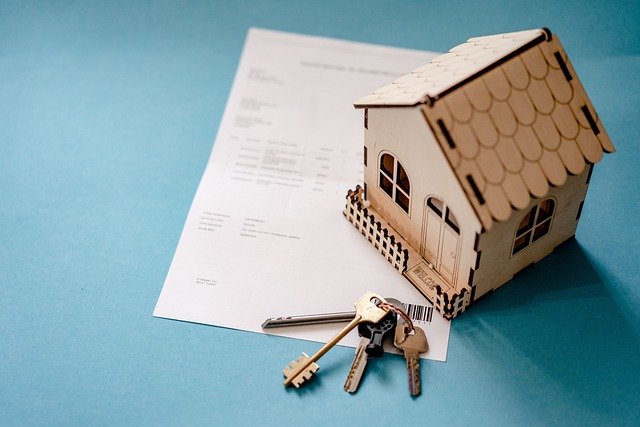How to Choose the Best Mortgage Rate in the UK: A Comprehensive Guide
Navigating the world of mortgages can be a daunting task, especially when you're looking for the best interest rates in the UK. With numerous banks and lenders offering various mortgage products, it's crucial to understand how to compare options and select the most suitable one for your financial situation. This guide will walk you through the process of choosing a mortgage with the best interest rate, helping you make an informed decision that could save you thousands of pounds over the life of your loan.

What factors influence mortgage interest rates in the UK?
Several factors affect mortgage interest rates in the UK. The Bank of England’s base rate plays a significant role, as it influences the overall lending environment. Your personal financial circumstances, including credit score, income, and debt-to-income ratio, also impact the rates you’re offered. Additionally, the type of mortgage (fixed-rate, variable-rate, or tracker), loan-to-value ratio, and loan term all contribute to determining your interest rate.
How can I compare mortgage interest rates effectively?
To compare mortgage interest rates effectively, start by gathering quotes from multiple lenders. Use online comparison tools and mortgage calculators to get an initial overview of available rates. Look beyond the headline rate and consider the Annual Percentage Rate of Charge (APRC), which includes fees and charges, giving you a more accurate picture of the total cost. Pay attention to any introductory offers and understand how rates might change after the initial period.
What documents do I need to apply for a mortgage in the UK?
When applying for a mortgage, you’ll typically need to provide proof of identity, address, income, and employment. This includes recent payslips, bank statements, tax returns (if self-employed), and utility bills. You’ll also need to show details of your outgoings, including any existing debts or financial commitments. Having these documents prepared in advance can streamline the application process and potentially help you secure a better rate.
Should I choose a fixed-rate or variable-rate mortgage?
The choice between a fixed-rate and variable-rate mortgage depends on your financial situation and risk tolerance. Fixed-rate mortgages offer stability, with consistent monthly payments for a set period, typically 2-5 years. This can be beneficial for budgeting and protection against interest rate rises. Variable-rate mortgages, including tracker mortgages, can offer lower initial rates but carry the risk of rate fluctuations. Consider your long-term financial plans and comfort with potential rate changes when making this decision.
How important is my credit score when seeking the best mortgage rate?
Your credit score plays a crucial role in determining the mortgage rates you’re offered. A higher credit score generally leads to better interest rates, as it demonstrates to lenders that you’re a responsible borrower. Before applying for a mortgage, check your credit report for any errors and take steps to improve your score if necessary. This might include paying down existing debts, ensuring you’re on the electoral roll, and avoiding multiple credit applications in a short period.
What are some strategies to secure the best mortgage terms?
To secure the best mortgage terms, consider saving for a larger deposit, as this can significantly lower your interest rate. Aim for at least a 10% deposit, but remember that rates improve substantially at 15%, 20%, and 25% thresholds. Work on improving your credit score and reducing existing debts. Consider using a mortgage broker who can access deals not available directly to consumers. Don’t be afraid to negotiate with lenders, especially if you have a strong financial profile or are an existing customer.
When comparing mortgage options, it’s essential to look at real-world examples to understand the potential impact on your finances. Here’s a comparison of current mortgage offers from some of the UK’s leading banks:
| Bank | Interest Rate | Type | Initial Period | APRC | Fees |
|---|---|---|---|---|---|
| Barclays | 3.54% | Fixed | 2 years | 4.3% | £999 |
| Nationwide | 3.69% | Fixed | 5 years | 3.9% | £999 |
| HSBC | 3.64% | Fixed | 3 years | 4.1% | £1,499 |
| NatWest | 3.75% | Tracker | 2 years | 4.2% | £995 |
| Santander | 3.59% | Fixed | 2 years | 4.0% | £1,249 |
Prices, rates, or cost estimates mentioned in this article are based on the latest available information but may change over time. Independent research is advised before making financial decisions.
Choosing the right mortgage with the best interest rate requires careful consideration of your financial situation, thorough research, and potentially expert advice. By understanding the factors that influence mortgage rates, comparing offers effectively, and presenting a strong application, you can increase your chances of securing favorable terms. Remember that the lowest rate isn’t always the best deal – consider the overall cost, including fees, and how the mortgage fits with your long-term financial goals.
The shared information of this article is up-to-date as of the publishing date. For more up-to-date information, please conduct your own research.






